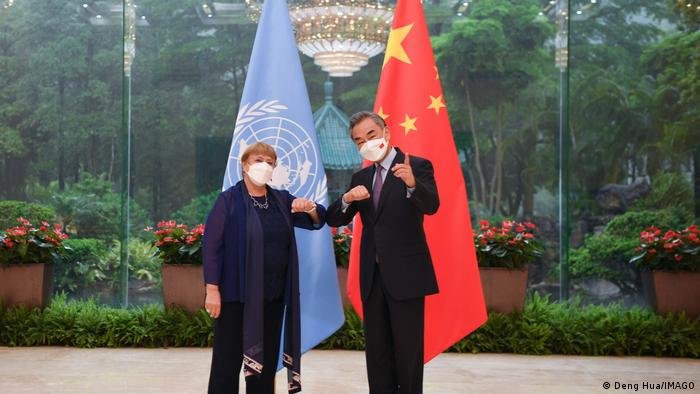China wants to stop the UN rights chief from publishing the report on Xinjiang’s human rights crimes


Michelle Bachelet, the head of the UN human rights office, announced on Monday that she will not run for re-election due to personal reasons, dispelling rumours that the decision was motivated by criticism of her recent trip to China.
Reuters suggest that rights organizations and some Western nations, including the United States, criticized Bachelet, 70, claiming that the restrictions Chinese authorities placed on the visit prevented a thorough and unbiased evaluation of the environment for human rights.
Bachelet began her visit to China on Monday in the southern city of Guangzhou before moving on to Xinjiang. This was the first tour by a U.N. human rights high commissioner in 17 years.
As per the report of Reuters, her agency stated last year that it thought Uyghurs in Xinjiang had been forcibly laboured, mistreated, and arrested without legal justification. During a press conference held online on Saturday, she claimed, “I have raised questions and concerns about the application of counter-terrorism and deradicalisation measures under broad application, particularly the impact on the rights of Uyghurs and other predominantly Muslim minorities.”
Bachelet’s access was restricted because China arranged for her to go in a “closed loop” with no international media in order to isolate individuals behind a fictitious bubble and stop the spread of COVID-19.
In response to Bachelet’s visit to China, U.S. Secretary of State Antony Blinken stated that Washington “remains worried.”
Late on Saturday, Blinken released a statement, “We are concerned about the conditions Beijing authorities imposed on the visit did not enable a complete and independent assessment of the human rights environment in the PRC, including in Xinjiang, where genocide and crimes against humanity are ongoing.”
Reports that Xinjiang people were under pressure not to voice their complaints about the region’s situation “further concerned” the United States. He said, “The High Commissioner should have been allowed confidential meetings with family members of Uyghur and other ethnic minority diaspora communities in Xinjiang who are not in detention facilities but are forbidden from travelling out of the region.”
Rights organizations and Western nations are concerned that China would exploit her visit as an endorsement of its record on human rights. Ned Price, a spokesperson for the U.S. State Department, stated on Tuesday that it was “a mistake to consent to a visit under the circumstances.”
China initially denied there were any prisons in Xinjiang, but in 2018 it claimed to have established “vocational training centres” to combat what it claimed to be terrorism, separatism, and religious extremism in the area.
According to Bachelet, she brought up with the Chinese government the alleged use of force, mistreatment, and harsh limits on religious practice, as well as the lack of independent judicial control of the centres’ operations.
Governor of Xinjiang Shohrat Zakir stated that all trainees “graduated” in 2019.
At the press conference, Bachelet also referred to the incarceration of activists, attorneys, and journalists in Hong Kong as “very disturbing.”
DISCLAIMER: The author is solely responsible for the views expressed in this article. The author carries the responsibility for citing and/or licensing of images utilized within the text.
